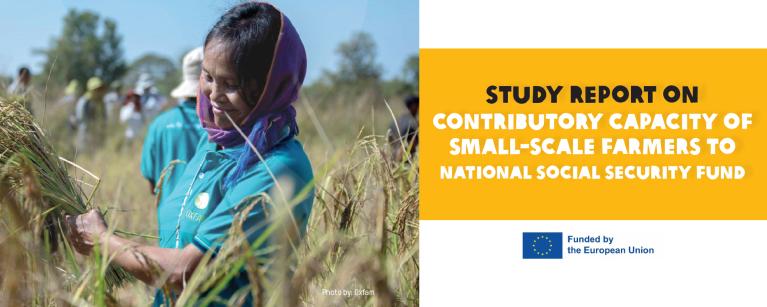Agriculture is the backbone of the Cambodian economy, contributing 22.8 percent to the nation’s Gross Domestic Product (GDP) in 2021 and providing 38.9 percent of total employment (World Bank, 2023). Considering the importance of agriculture to the national economy in terms of poverty reduction and export earnings, the government’s primary strategy in agriculture is to focus primarily on productivity enhancement and competition (RGC, 2022).
Although agriculture, particularly rice production, is vital to Cambodian food security and society, the sector faces several challenges. Farmers in Cambodia are exposed to several risks and vulnerabilities, including climate changes and environmental exposures, physical vulnerability, social vulnerability, and economic vulnerability. These risks and vulnerabilities, to a large extent, adversely affect their farm income and well-being. The Asian Development Bank (ADB) predicts that due to adverse weather events and surging temperatures, by 2050, Cambodia will lose at least 10 percent of its GDP. In this context, supporting small-scale farmers with improved access to social protection benefits is paramount to expanding NSSF coverage to enhance their income security and economic viability.
Social protection systems encompass a range of programs, including social assistance, social insurance, and public employment programs. The RGC regards social protection as a critical tool in reducing poverty and vulnerability, improving living standards, and providing a better future for the country.
Oxfam in Cambodia and the Coalition of Cambodian Farmer Community (CCFC) commissioned this study to assess the social protection needs and contributory capacity of small-scale farmers in Cambodia. The study seeks to answer vital issues such as the risks and vulnerabilities faced by small-scale farmers, the needs and social protection priorities of small-scale farmers in Cambodia, and the currently available NSSF schemes that suit the needs and priorities of small-scale farmers. Further, the study explores the ability of small-scale farmers to contribute to healthcare and pension schemes under the NSSF regularly and the amount small-scale farmers would be willing to contribute to the NSSF schemes. In addition, the study identifies key challenges that might hinder small-scale farmers from making contributions, including how debt and household expenditure might impair their capacity to contribute to the schemes and external barriers that might impede the expansion of the NSSF coverage for small-scale farmers. The study is intended to support the development of policy options and specific action plans for expanding social security to small-scale farmers in Cambodia.
